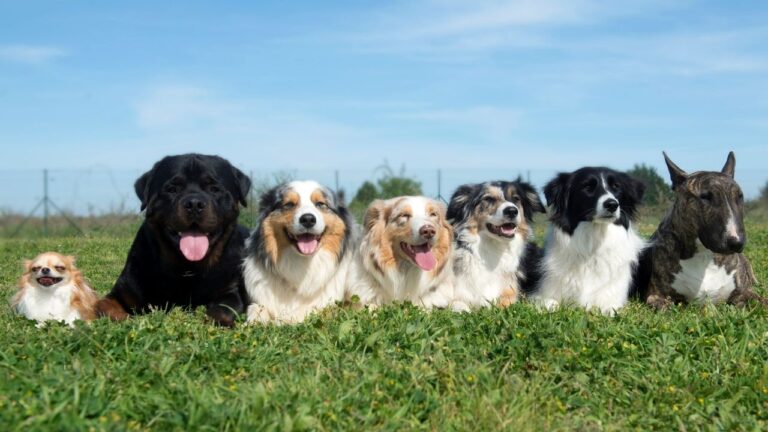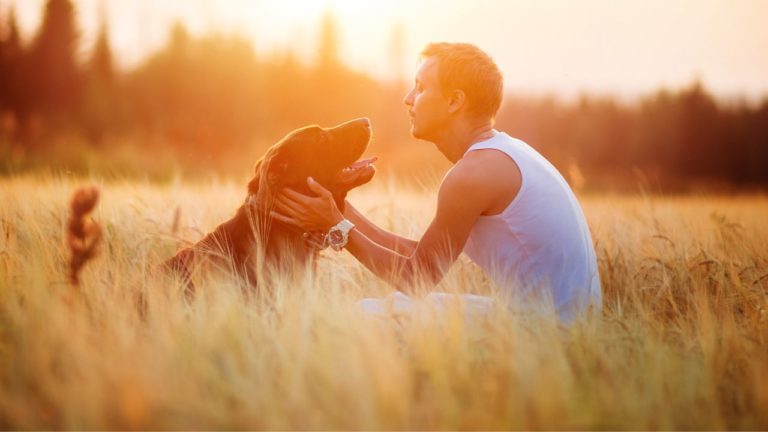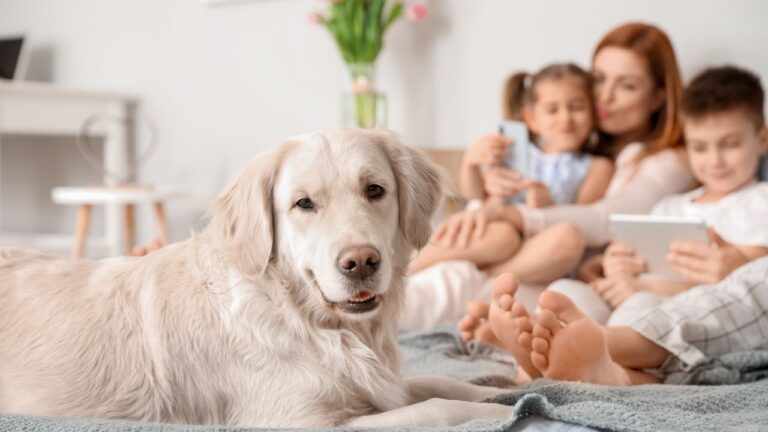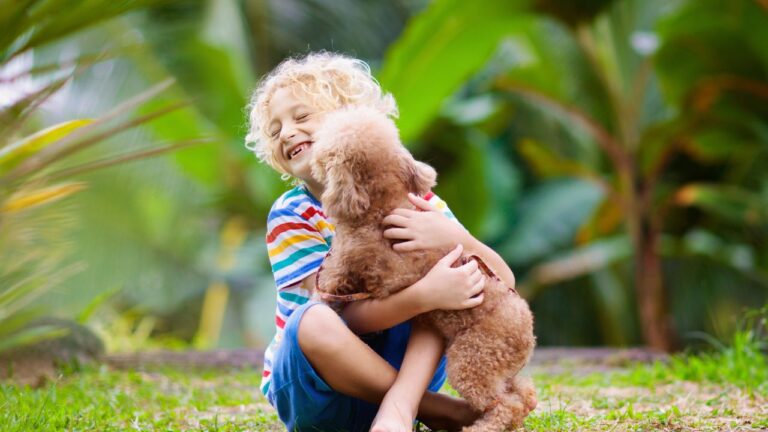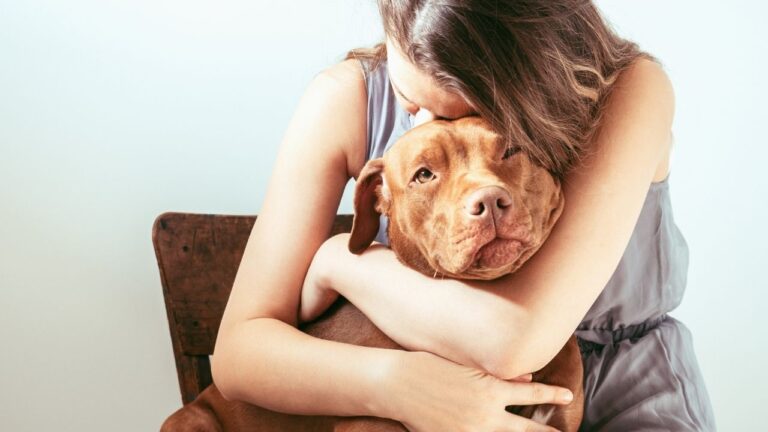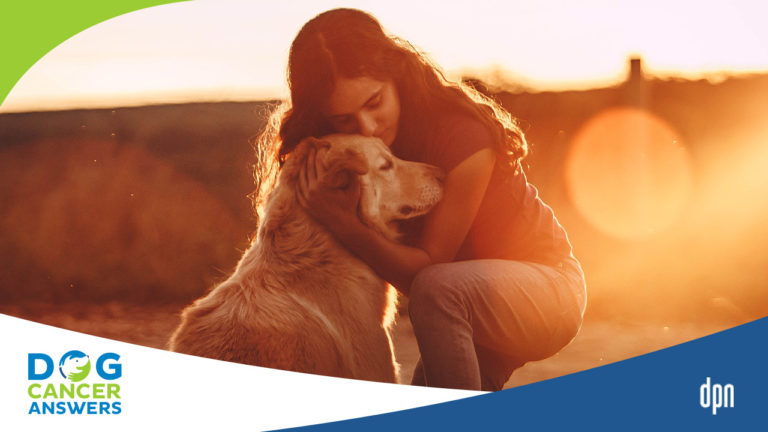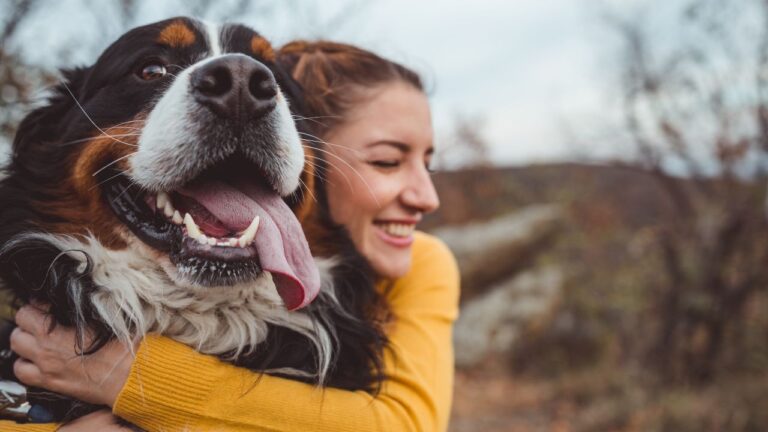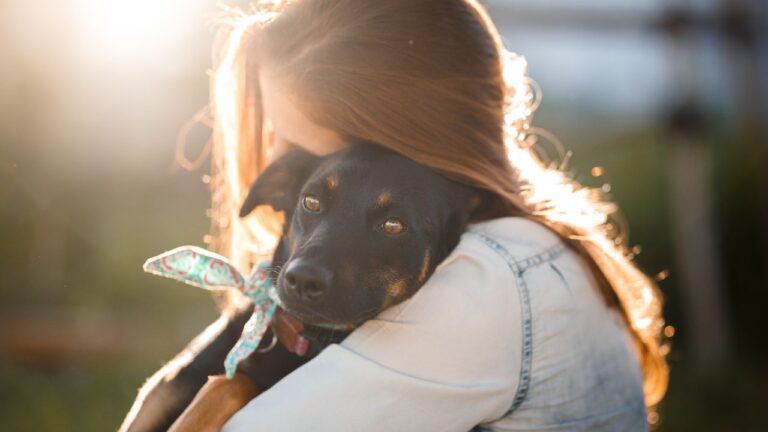Expect Change Now That Your Dog Has Cancer
When our dog has cancer, we want a simple, quick, "set-it-and-forget-it" solution ... but we rarely get one. There's hope, though, if we adopt a flexible, "let's try it" mindset that assumes everything will change again and again.

Read Time: 7 minutes
I’ve been helping dog lovers face their dog’s cancer diagnosis since 2007, and have a few rock-solid pieces of advice for anyone on this journey. I call them my “dog cancer tips.”
None of my tips are medical because I’m not a veterinarian. These tips are more about how to handle cancer as a human person: they apply no matter what type of cancer you are facing.
Cancer Changes Everything
Here’s an important dog cancer tip: expect constant change because cancer changes everything, including you AND your dog.
Here are my tips on how to make friends with change — or at least, make its acquaintance — embrace it, and hopefully, benefit from it.
#1: This is a Wilderness Trek, Not a Road Trip
Many of us, especially those who didn’t realize dogs could even get cancer, assume that cancer treatment is a super highway with well-marked exits.
We’re used to problems like ear infections, a hot spot, or our dog eating something they shouldn’t. Broken bones and serious problems like heart disease and diabetes are relatively straightforward medical problems. They have solutions.
But cancer is not straightforward, and it’s not a super highway with well-marked exit ramps!
Cancer treatment is more like a wilderness with few marked trails. It’s just us and our dog trying to find paths and determine the most promising ones. If lucky, we have an excellent veterinarian and other guides who can help us make our own guide map.
Accepting this as soon as possible will help you tremendously. This is not going to be easy. We all want it to be easier for you, but that’s not the way cancer is.
#2: Cancer’s Nature Is Change
If you’re new to the cancer journey, you need to understand something else: cancer is not like other diseases. It involves multiple body processes and changes the way the body behaves and heals itself. It affects immunity, metabolism, and normal cell turnover.
We look at a tumor and think “that’s the cancer.” But that’s not really completely accurate. Cancer has changed other parts of your dog’s body, too. It’s not just one thing.
Cancer changes the body, and it continues to change over time.
For example, if we can “cut the tumor out” entirely and get clear margins, we might rejoice. And we should! However, it’s also a good idea to stay mindful of how cancer is a microscopic disease. We can have cancer cells in our body and never know it … and so can our dogs.
Expect change: stay vigilant with strategies that may help keep cancer at bay after surgery might be useful … even if your dog is cancer-free on tests.
There are many more changes you can expect.
- Expect your dog’s prognosis to change as you do more testing.
- Expect your dog’s treatment plan to change as you start treating.
- Expect your dog’s response to treatments to change over time.
- Expect your dog’s appetite to change.
- Expect your dog’s symptoms to change.
- Expect something that “worked” a year ago might not work now.
- Expect your veterinarian to retire or move away.
- Expect to spend money on cancer over the long term, as some dietary changes, supplements, and medications might need to be on board for the long haul.
I could go on and on with the list of things that will change — and change again — and maybe even again and again — as your cancer journey progresses.
The bottom line is this: expect change, and you will be less surprised and better able to handle it when it (inevitably) comes.
#3: Embrace Uncertainty
It’s helpful to accept right up front that cancer is super messy. It affects multiple systems in the body, and there isn’t “one thing” you need to do; there are always many things that need addressing.
For most of us, cancer pops up suddenly and knocks us off balance. Then we have to do all sorts of complex tasks to get back on track.
- Just getting a definitive cancer diagnosis can be complex and expensive.
- It’s like detective work.
- It takes time, and the more thorough you are, the more confident you become that you know what’s happening.
Then the uncertainty continues as you start treating. The longer your dog thrives on cancer treatments, the more complexity you may see, as treatments that helped kill cancer sometimes have delayed side effects.
Cancer changes and that means we have to change, too. We must change how we treat if the first thing we try stops working.
Here’s my tip: pretend you are a surfer. The environment around you is in constant motion, so you need to stay flexible and in touch with it to “meet the wave where it will be.”
And remember if you fall off the surfboard, you’re tethered to it so you can get back on. Which leads me to my next change tip.
Watch the video version of this article with Molly Jacobson on YouTube.
#4: Choose a Focus (Hint: Your Dog)
Cancer diagnoses tend to focus the mind, usually on what we will do to treat cancer. We hope that what we choose will cure it, and we anxiously monitor our choices to see what their outcomes are.
Honestly, I think this is a mistake. By focusing on outcomes when there are so many moving pieces, we’re almost guaranteed to be disappointed. There are just too many things beyond our control that can influence the outcomes.
I suggest choosing to focus and tether yourself to something you CAN control: your relationship with your dog.
Your dog is probably pretty great, since all dogs are the Best Dogs Ever. And that will never change. Your dog will always be a Good Boy or a Good Girl.
Focus on loving your dog. Let that be the “work” you do. You can control how you relate to your dog, and that guarantees a good outcome, because you will never lose that relationship, even long after they are passed from this world.
#5: Make the Best Choice, Not the Right Choice
If you are the sort of person who likes to be certain you’re making the right choice, cancer will force you to modify your expectations.
No choice is guaranteed when it comes to cancer, and no responsible person will ever make one.
You have to make choices without knowing for sure that they will help, or knowing how much they will help.
I suggest you get more comfortable with being certain you are making the best choice for the moment based on what you know right now.
Get comfortable with making the best choice, not the “right” choice.
If you continually make the BEST choices you can, you will look back with no regrets. I promise!
#6: Expect Doubt
I suggest you accept — right NOW — that you will always be in doubt about your choices regarding your dog’s cancer.
Always!
There are several reasons why:
- There is no one thing you can do that has guaranteed results in dog cancer. You will never hear “This is definitely going to cure your dog’s cancer” from a reputable medical professional or healer.
- No one knows with 100% certainty whether a treatment or strategy will “work” at all, let alone how well.
- Cancer adapts endlessly and can eventually find ways to beat our strategies.
- Because of this, sometimes things “work” for a while and then stop.
- Dogs age faster than we do (from 4 to 7 years for every human year). So what helped last year is what helped four to seven years ago … and it might not be enough now that your dog is so much older.
When change is not only probable but inevitable, doubt is a constant companion.
You will doubt the diagnosis, the treatment choices offered, your own decisions — even your own eyes.
Seeing May Not Be Believing
A few weeks ago, a member of our Facebook support group posted x-rays of her dog’s lungs and heart. She asked the group if anyone could see the lung metastasis her veterinarian diagnosed. She had just helped her dog passed the night before based on this information and her dog’s labored breathing.
Metastasis was everyone but her. We all saw the cloudy, lacy, almost misty pattern of lung metastases clouding her dog’s chest cavity.
She posted another x-ray, one from a year earlier, that was crystal clear. We tried to point out the differences between the two images, but she couldn’t believe they represented metastasis.
She described the same images we saw … but could not understand that it meant what it obviously meant.
She was doubting her veterinarian, and trying to find evidence for her own doubt.
I think all of us go through this on our own wilderness treks. It’s part of the journey.
My advice: when you encounter doubt, doubt it. It might just be part of the normal human brain’s activity of trying to solve a problem that is unsolvable. Don’t assume that your doubt is there because something is wrong. It’s more likely there because you’re in pain and want the problem to be something other than cancer is here, taking your dog’s life.
#7: Take a “Let’s Try” Attitude
Here’s a good mindset to help you embrace change without giving up on your dog or descending into despair: be hopeful even when you’re uncertain.
Assume you will “try” treatments and see how they go.
Try, Monitor, Assess, Continue or Modify
Take the attitude of “we’ll see!” with every new strategy:
- Decide to try a promising new strategy.
- Monitor to see if it helps.
- If it doesn’t help, modify or stop the strategy.
- If it does help, continue the strategy.
- If it stops helping, modify or stop the strategy.
- Rinse and repeat!
Think of yourself as an experimenter, testing out strategies. That will help you stay out of the “this will work for sure” mindset I’ve seen trip up so many loving dog people. (Being sure of an outcome is great if you are correct about it, but devastating if you are wrong.)
Think of yourself as a student of your dog’s cancer, and don’t fight the learning process.
With each challenge you face, you’ll learn more, and that’s a good thing. The more you know, the better your decisions can be.
Your dog’s cancer is not exactly like any other dog’s cancer … even if they are the same weight, age, breed, or have the same type of cancer. Because cancer is so involved in so many intricate ways, each case is truly unique.
Be a learner.
So, in a way, you will end up being the foremost worldwide expert on your own dog’s cancer … if you pay attention.
Sound tiring? Yup. That’s why it’s so important to remember why you’re in this school: because you have a dog you love so much.
And here’s how embracing change will eventually, hopefully, benefit you and your dog … it will center your love for each other.
Bonus Tip: Your Dog’s Love Won’t Change
The only part of dog cancer that stays the same from the beginning, all the way through, and way past the end is your dog’s love for you.
Focus on your dog when you need a break from studying your dog’s cancer. It’s the ONLY thing your dog really wants: your companionship and peaceful presence.
Be with your dog more than with your worry or thinking.
Take a walk. Take a nap. Rub a belly. Fondle an ear. Meditate. Play. Cross something off their bucket list. Try to set aside your own worry and fear and just be with your dog.
No matter your dog’s diagnosis, prognosis, or treatment schedule, your dog is the central reason you’re facing the cancer challenge.
So do the emotional management exercises Dr. Demian Dressler recommends in his book The Dog Cancer Survival Guide, as often as needed.
… But Your Love for Your Dog Will
After listening to hundreds of thousands of people on our websites, social media groups, and customer support queues since 2007, I can tell you this: helping your dog fight cancer virtually guarantees you will find yourself loving your dog more than ever.
Cancer opens the heart and mind when we stay in touch with our dogs.
And you will never, ever, ever lose that love. The changes it makes last a lifetime.
Molly Jacobson
Topics
Did You Find This Helpful? Share It with Your Pack!
Use the buttons to share what you learned on social media, download a PDF, print this out, or email it to your veterinarian.
Editor's Picks
CATEGORY


